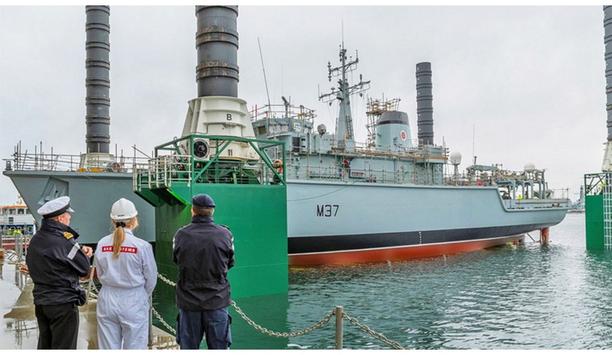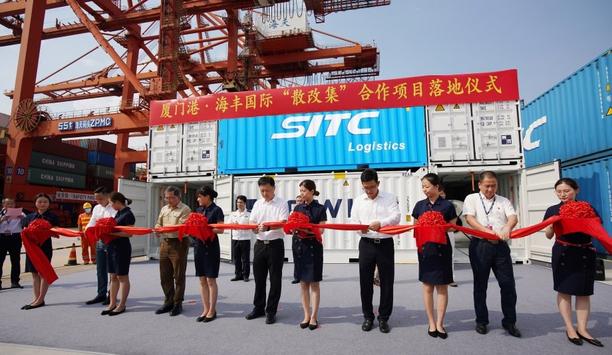Ship charterers and operators representing over 15% of total bulk cargo transported by sea in 2021 deliver on their commitment to the Sea Cargo Charter, a global framework for aligning ship chartering activities with society’s goals.
Signatories to the Sea Cargo Charter commit to measuring and publicly disclosing the alignment of their chartering activities with the ambition to reduce total GHG emissions from international shipping by at least 50% by 2050, as set out by the International Maritime Organization, the UN agency regulating global seaborne trade.
Global seaborne trade
We better understand the climate impacts of our business activities at a much more granular level"
“Thanks to unprecedented levels of data sharing, we better understand the climate impacts of our business activities at a much more granular level, and can back up operational and strategic decision-making with real data,” says Jan Dieleman, President, Cargill Ocean Transportation and Chair of the Sea Cargo Charter Association.
Jan Dieleman adds, “Signatories of the Sea Cargo Charter have diverse profiles and activities, and this report holds us accountable to our targets and allows us all to play our part in addressing the environmental impacts of global maritime trade on people and the planet.”
Reducing shipping emissions
The Sea Cargo Charter Annual Disclosure Report 2022 reveals the climate alignment scores of 25 charterers and operators and provides insight into the maritime industry’s current state of progress vis-a-vis the IMO’s goal of reducing shipping emissions by at least 50% by 2050.
The Signatories reporting this year are ADM, Anglo American, Bunge, Cargill, COFCO International, Copenhagen Commercial Platform (CCP), Diamond Bulk Carriers, Dow, Eagle Bulk, Enviva, Equinor, Gunvor, Holcim Trading, Klaveness Combination Carriers, Louis Dreyfus Company, Maersk Tankers, Norden, Nova Marine, NYK Bulkship (Atlantic), Shell, Signal Maritime Services, Tata Steel, Torvald Klaveness, TotalEnergies, and Trafigura. Signatories that joined the Sea Cargo Charter after September 2021 are not required to report before 2023.
Climate alignment scores
The first reporting of the climate alignment scores is a significant milestone for the Sea Cargo Charter"
“The first reporting of the climate alignment scores is a significant milestone for the Sea Cargo Charter, as well as for individual Signatory companies.”
“This report represents many months of effort and collaboration between Signatories and our business partners. We are on a journey that will allow us to reduce our climate impact year over year, and this first result is a huge step in the right direction. We invite all responsible operators and charterers to join us on this journey,” stated Rasmus Bach Nielsen, Global Head Fuel Decarbonisation at Trafigura and Vice Chair of the Sea Cargo Charter Association.
Climate assessment and reflections
The report includes emissions data collected by Signatories from ship owners and operators for chartering activities in 2021 and compares it to a decarbonisation trajectory for the same year.
It shows that 12 of 25 reporting Signatories are aligned with the International Maritime Organization’s target for their segments. The report also contains commentary from charterers on key takeaways from their climate assessment and reflections on how this new insight has and will inform their business activities in the future.
Climate risk disclosure
Building on the growing global momentum toward climate action and climate risk disclosure, the Sea Cargo Charter was launched in October 2020 with 17 Signatories. The number of Signatory companies has grown to 33.
The Annual Disclosure Report 2022 was produced by the Global Maritime Forum, which performs secretariat services for the Sea Cargo Charter, with expert support provided by UMAS and Smart Freight Centre.












